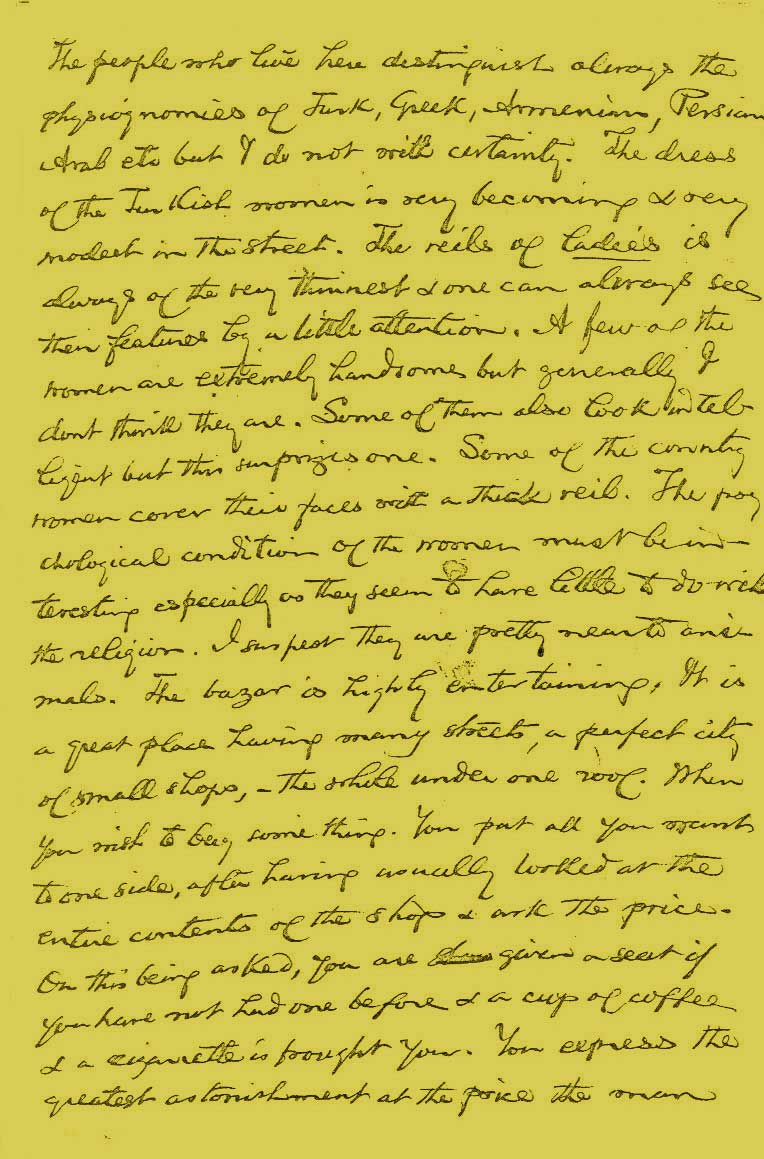 |
The people who live
here distinguish always the physiognomies of Turk, Greek, Armenian, Persian,
Arab etc. but I do not with certainty. The dress of the Turkish women
is very becoming & very modest in the street. The veils of ladies
is always of the very thinnest & one can always see their features
by a little attention. A few of the women are extremely handsome but generally
I don’t think they are. Some of them also look intelligent but this
surprizes one. Some of the country women cover their faces with a thick
veil. The psychological condition of the women must be interesting especially
as they seem to have little to do with the religion. I suspect they are
pretty near to animals. The bazar is highly entertaining. It is a great
place having many streets, a perfect city of small shops –the whole
under one roof. When you wish to buy some thing you put all you wants
to one side, after having usually looked at the entire contents of the
shop & ask the price. On this being asked, you are given a seat if
you have not had one before & a cup of coffee & a cigarette is
brought you. You express the greatest astonishment at the price the man |
